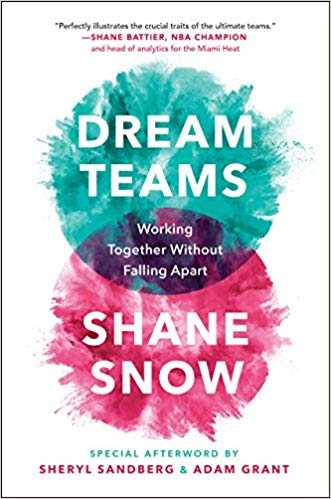Dream Teams: Working Together Without Falling Apart
by: Shane Snow
Then, anytime we face a challenge, Yamashita suggests stepping back and doing two things: “First, take a moment to frame the problem.” Is it a routine problem? Does it require breaking new ground? How high are the stakes? Routine problems don't require much (or often, any) cognitive diversity, while novel problems benefit from it greatly. “Based on that,” says Yamashita says, “do a casting session.” He uses the word &ldquocasting&rdquo deliberately. A movie director doesn't just grab whoever's around or whoever was in the last movie she made. The cast for every movie needs to make sense for the plot and script.
“The most important thing is to realize that the problem is on the board,” Diggs would reminisce. “It's not with you”
… This means that, contrary to our instinct, the collaborator who provokes or contradicts us is our ally. As Dr. Nemeth puts it, “One must learn not only to respect and tolerate dissent, but to welcome it”
